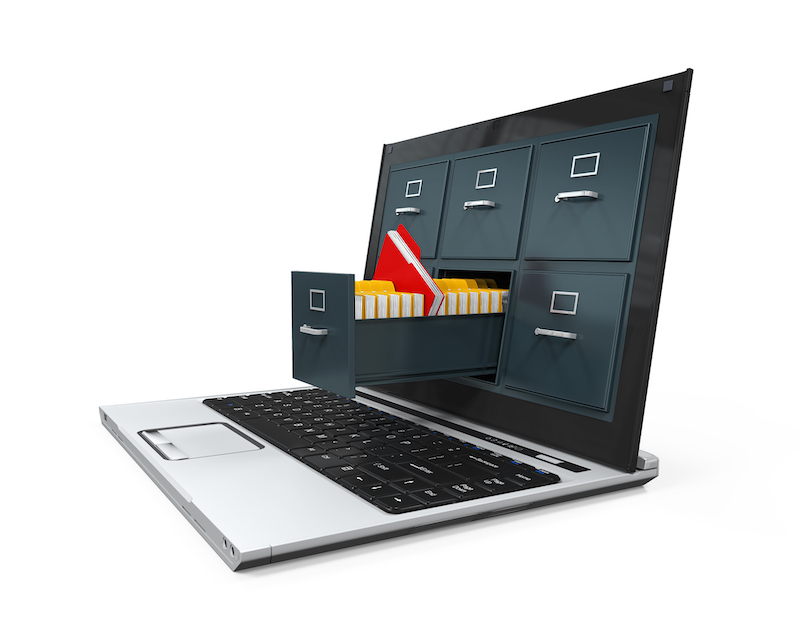Staying organized in your office, home or business, requires regular maintenance. Taking some time at least once a year, preferably once a quarter, to cull through and purge paperwork and files is an important step toward that end. While it’s usually easy to see paperwork and other physical clutter pile up over time, it’s often far more difficult to see the build-up of digital clutter. It’s largely hidden and doesn’t take up any physical space. However, clearing out your digital spaces is equally important to staying organized. Being able to find what you need when you need it in a timely manner is the key to maintaining productivity.
Digital clutter builds up in several places. At a minimum of once a year, perhaps after you’ve filed your taxes, or even better, once a quarter, take some time to do the following:
- Computer files: Go through all the documents and folders on your computer. Delete what’s out of date, duplicated, or no longer relevant, just as you would with paper files.
- Computer desktop: If your computer desktop is littered with individual documents, take time to “file” those documents, like with like, into folders with broad-topic labels. Get them off your desktop into your computer’s document folder in the dock.
- Cloud files: Don’t forget files stored in the cloud! Get into your Dropbox or other cloud-based accounts and purge what you don’t need there as well. When you’re paying for cloud storage, keeping the excess to a minimum will save you money and space.
- Email inbox & folders: Email build-up is also a productivity inhibitor. When you have thousands of emails in your inbox, it can take longer to find what you need, even when using your search function. Take time to purge old, out-of-date emails, both from your inbox and from your email folders. Many companies are requiring email inbox purges on a yearly basis these days to save space on the server.
- Archive emails: If you’re nervous about letting go of old emails because you fear you may need the information for a CYA situation later, try moving them into folders according to year – for example, “2016 emails,” “2017 emails,”, etc. This way they will be out of your inbox, but accessible for search. And you can probably rest assured that if you haven’t needed to get into that 2016 folder by the end of the year, it can be safely deleted!
- Update security: An important digital space to update is your online security information. Update passwords on a regular basis, and don’t forget to update the information on those new passwords in your password log or wherever you store those details.
Staying on top of digital clutter by deleting the old, out-of-date and irrelevant, and re-organizing what you decide to keep will help you save time and hassle, clearing the way to improved productivity!


